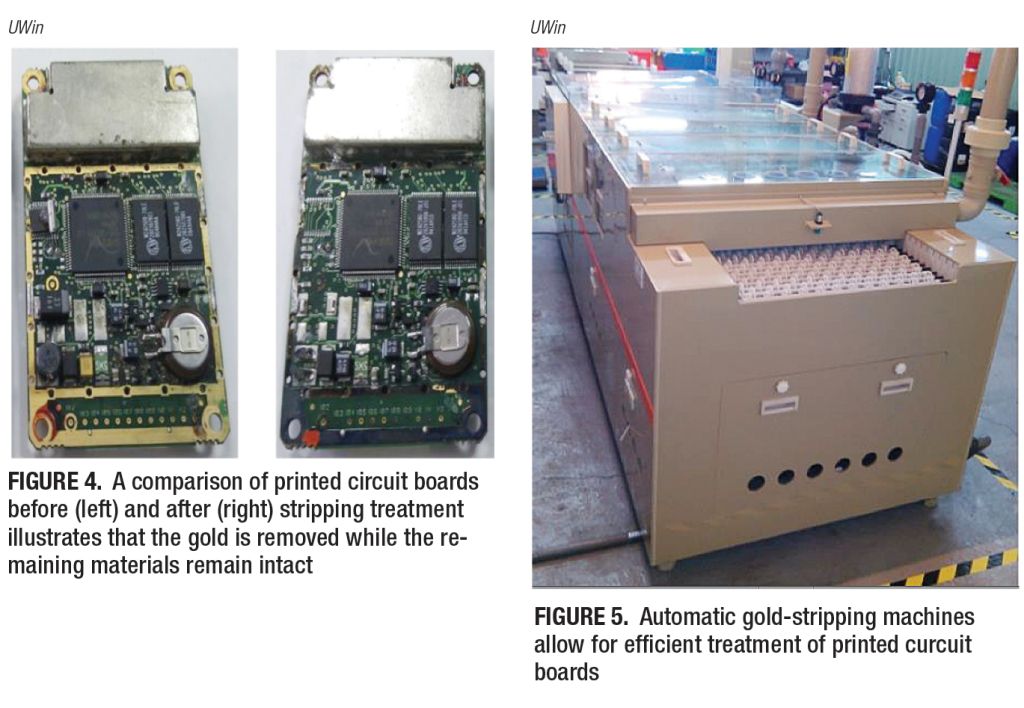| |
NEW FRONTIERS IN METALS RECYCLING--「SAFER STRIPPING」
Chemical Engineering Magazine
By Mary Page Bailey
April 1, 2015
http://www.chemengonline.com/new-frontiers-metals-recycling/?printmode=1
Electronics components, specifically PCBs, represent a very promising area for the recovery of precious metals, as gold can be stripped from PCBs and recycled. Typical industrial gold-stripping processes utilize cyanide or aqua regia (nitro-hydrochloric acid) solutions. UWin Nanotech Co. (New Taipei City, Taiwan; www.uwin-nano.com) has recently patented what is said to be more environmentally friendly, less toxic gold-stripping chemicals — UW-700 (sulfide solution) and UW-860 (citrate solution). “Aqua regia is a highly corrosive solution, and cyanide is a very toxic solution,” UWin managing director Kenny Hsu explains, “whereas UW-700 is a neutral gold-stripping solution, and is also highly selective.” For UW-860, Hsu elaborates, saying that the solution “is different from aqua regia because it doesn’t damage the plastic, ceramic, silicon, titanium or stainless-steel substrate.”
After treatment with UW-700, the gold is completely stripped from the PCB, while the remaining materials are left intact. The recovered gold is isolated and can be re-sold for use in optical-electrical, plating and decorative applications. According to the company, applying this technology to 1 m.t. of PCB waste from cellular phones can result in the extraction of 400 g of gold.
Using these chemicals, the company has developed modular, automatic gold-stripping machines, which have deployed commercially worldwide, including locations in Taiwan and Texas. The company is also collaborating with a mechanical manufacturer to develop new types of stripping machines. UWin has also developed technologies for selective stripping of other precious metals, including silver, palladium and indium. In January 2015, the company released UW-195, a cyanide-free platinum-stripping agent that is compatible with stainless-steel, plastic or ceramic substrates.

|



